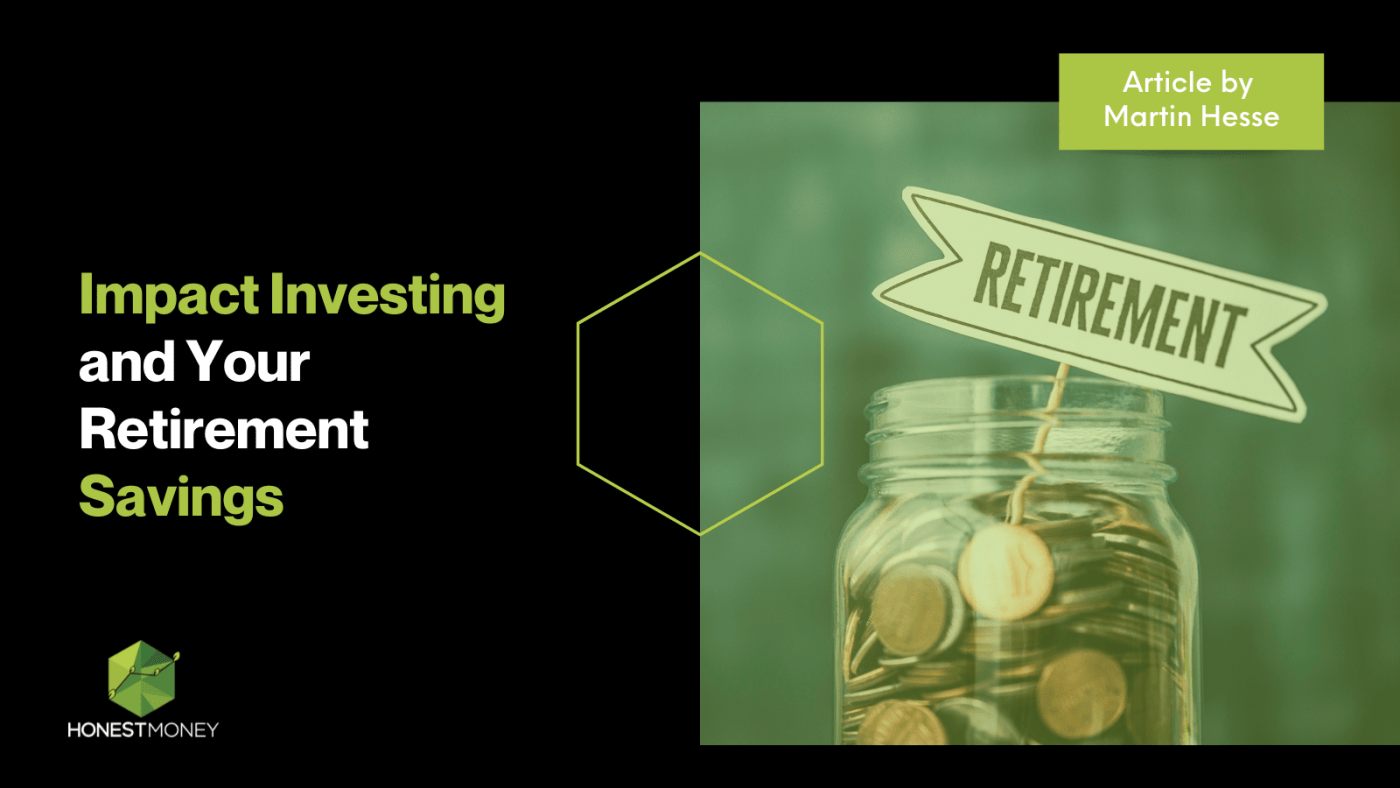Impact Investing and Your Retirement Savings

South Africa is not known as a nation of savers, and yet it does have a massive pot of money – about R5.8 trillion, or over R90 000 per South African – in retirement savings. Because they collectively hold so much wealth, retirement funds have enormous influence as institutional investors and the power to act as agents for positive change, economically and socially. This approach, known as “impact investing”, has been adopted by retirement funds around the world, in some cases with great success.
The primary function of a retirement fund is to provide a source of pension income for its members when they take a deserved rest after a long working career. While a member’s pension benefit should be sufficient to ensure a comfortable retirement, its growth in the fund needs to be managed responsibly. But should the retirement industry be assuming functions that should, essentially, be the responsibility of the state?
The message from the annual conference of the Institute of Retirement Funds Africa (IRFA), which took place in Cape Town last week, with its theme “Building Resilience – Leading Change for a Lasting and Positive Impact”, was that the industry should be complementing and supplementing the work of the state.
“Our industry has extraordinary power,” the CEO of the IRFA, Geraldine Fowler, said in her opening address. “We do not just protect the retirements of our members. Through the scale of the assets we hold, we can shape the very societies in which those members and their families live. We can stimulate employment, not just through direct investment, but through infrastructure that builds industries and creates work. We can help eradicate inequality by directing capital into projects that uplift women, young people and marginalised communities. And we can drive socio-economic growth in ways that are visible, tangible and lasting – building schools, hospitals, renewable energy, transport networks and affordable housing.”
The many facets of impact investing
The United Nations defines “impact investing” as “the deployment of funds into investments that generate a measurable and beneficial social or environmental impact alongside a financial return on investment”.
The concept is supplanting older concepts such as “socially responsible investing”, “sustainable investing” and “environmental, social and governance (ESG) investing”, because, while reflecting the “do good” ethos of these approaches, it focuses more on outcomes.
In practice, “impact investing” means retirement fund trustees need to consider – within the confines of Regulation 28 of the Pension Funds Act, which limits a fund’s exposure to more risky investments and ensures diversification – investing in sustainable companies with good ESG records, public and private infrastructure projects, and smaller-scale projects that can benefit communities more directly and, importantly, continually monitoring outcomes.
Fowler said there was a need to “stop focusing on large-scale infrastructure projects and instead get into local communities, where investments are visible to the members and create tangible benefits like jobs, healthcare clinics, and education. This fosters trust and buy-in from members.”
What about returns?
An argument against retirement funds investing for social and economic impact is that it can potentially negatively affect returns for members, which is any investor’s primary consideration.
But in her conference presentation, “Understanding Impact and Why it Matters to Retirement Funds”, Carina Wessels, Executive: Governance, Legal, Compliance and Sustainability at AlexForbes, said the two objectives should ideally go hand in hand.
Wessels said the retirement industry’s focus on ESG investing, which had been a trend until recently, had not delivered on its aims and arguably never would. She said the problem was that ESG focused on input (how companies could become more ESG compliant) whereas impact investing focuses on output and outcomes, using clear metrics.
She said if retirement funds invested responsibly and carefully monitored both investment and impact performance (the latter against, for example, the UN Sustainable Development Goals), there was no reason why returns should be compromised; on the contrary, impact investing should be a win-win for both society and investors.
Author
-

Martin is the former editor of Personal Finance weekend newspaper supplement and quarterly magazine. He now writes in a freelance capacity, focusing on educating consumers about managing their money
View all posts


